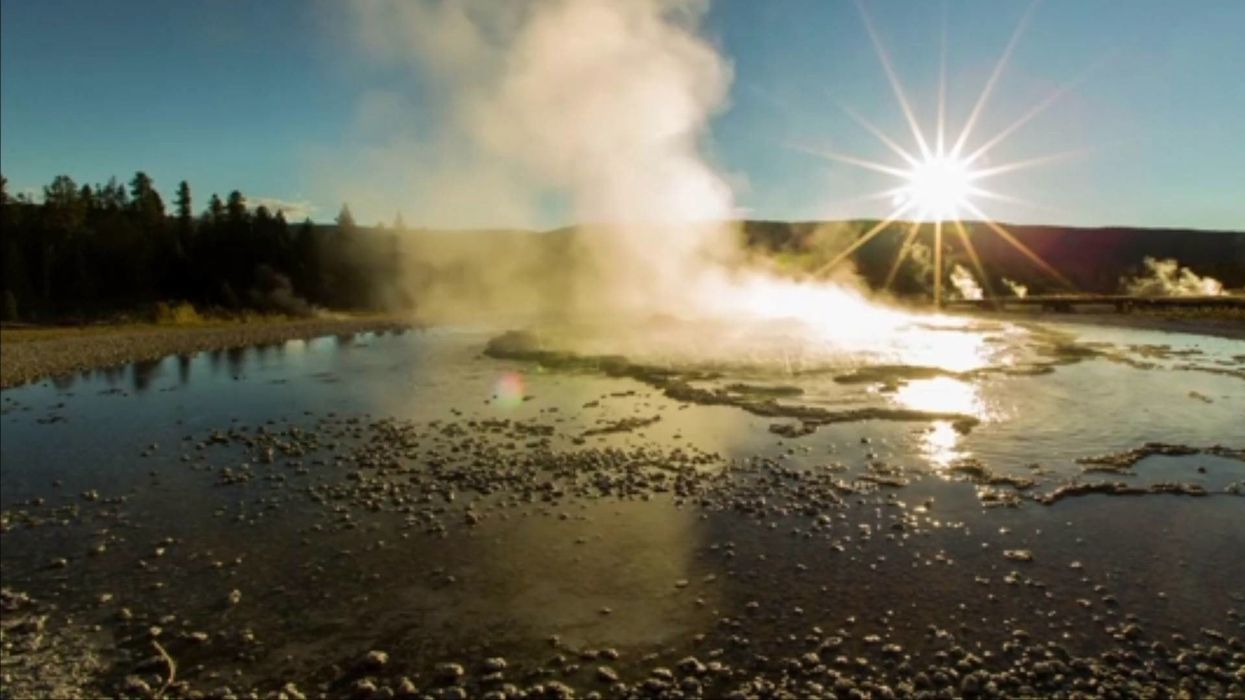Science & Tech
Catherine Shuttleworth
Jan 25, 2024
How Dangerous Are Hot Springs at Yellowstone?
Money Talks News / VideoElephant
A new study has given us insight into how life on Earth began over 3 billion years ago, supporting the idea that the vital components of our earliest ancestors emerged from reactions involving ancient hydrothermal vents.
One of the most obvious features of a cell is the fatty membrane, and researchers from Newcastle University found that by mixing hydrogen, bicarbonate, and iron-rich magnetite in simulated ancient seawater they could form an array of organic molecules -- including a group of long-chain fatty acids.
According to the researchers, these long-chain fatty acids are "strong candidates" to have formed the planet's earliest cell membranes. However, their own origins remain a mystery.
"Central to life's inception are cellular compartments, crucial for isolating internal chemistry from the external environment," says lead author Graham Purvis, a postdoctoral research associate at Durham University.
"These compartments were instrumental in fostering life-sustaining reactions by concentrating chemicals and facilitating energy production," he adds, "potentially serving as the cornerstone of life's earliest moments."
Hydrothermal vents are widely seen as a likely setting for those earliest moments, given their crucial combination of heat and chemical ingredients necessary for abiogenesis.
Key chemical traits of Earth's earliest seas were re-created by the researchers in a lab. Hot alkaline water meant to mimic the outflow from certain types of hydrothermal vents were re-created too.
The resulting fatty acids have separate regions with either hydrophilic (water-attracting) or hydrophobic (water-repelling) properties. This gives them the consequential ability to naturally form organic 'pockets' in aquatic environments.
Once cell membranes could be formed in the conditions around hydrothermal vents, those membranes called have be key to development of life on Earth, the authors explain.
Research such as this helps connect the pieces in understanding the early events in Earth's history.
"We think that this research may provide the first step in how life originated on our planet," says Jon Telling, a biochemist at Newcastle University.
"Research in our laboratory now continues on determining the second key step," he adds, and shedding more light on "the first potential 'protocells' that went on to form the first cellular life."
The researchers also added that similar membrane-forming reactions could still be taking place in some extraterrestrial oceans, such as those of icy moons like Europa and Enceladus.
You can read the study in Communications Earth & Environment.
Sign up to our free Indy100 weekly newsletter
Have your say in our news democracy. Click the upvote icon at the top of the page to help raise this article through the indy100 rankings.
How to join the indy100's free WhatsApp channel
Top 100
The Conversation (0)














